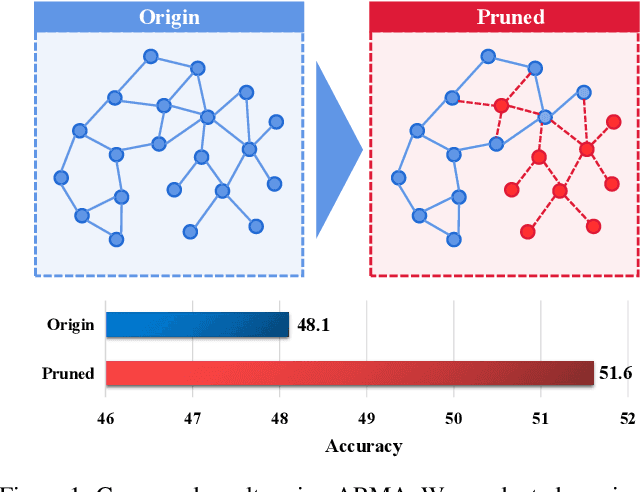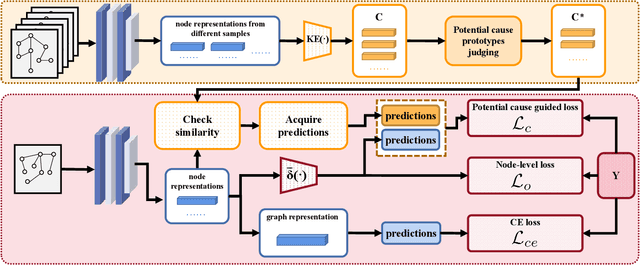Chengyu Yao
Heterogeneous Attributed Graph Learning via Neighborhood-Aware Star Kernels
Nov 14, 2025



Abstract:Attributed graphs, typically characterized by irregular topologies and a mix of numerical and categorical attributes, are ubiquitous in diverse domains such as social networks, bioinformatics, and cheminformatics. While graph kernels provide a principled framework for measuring graph similarity, existing kernel methods often struggle to simultaneously capture heterogeneous attribute semantics and neighborhood information in attributed graphs. In this work, we propose the Neighborhood-Aware Star Kernel (NASK), a novel graph kernel designed for attributed graph learning. NASK leverages an exponential transformation of the Gower similarity coefficient to jointly model numerical and categorical features efficiently, and employs star substructures enhanced by Weisfeiler-Lehman iterations to integrate multi-scale neighborhood structural information. We theoretically prove that NASK is positive definite, ensuring compatibility with kernel-based learning frameworks such as SVMs. Extensive experiments are conducted on eleven attributed and four large-scale real-world graph benchmarks. The results demonstrate that NASK consistently achieves superior performance over sixteen state-of-the-art baselines, including nine graph kernels and seven Graph Neural Networks.
Graph Partial Label Learning with Potential Cause Discovering
Mar 18, 2024



Abstract:Graph Neural Networks (GNNs) have gained considerable attention for their potential in addressing challenges posed by complex graph-structured data in diverse domains. However, accurately annotating graph data for training is difficult due to the inherent complexity and interconnectedness of graphs. To tackle this issue, we propose a novel graph representation learning method that enables GNN models to effectively learn discriminative information even in the presence of noisy labels within the context of Partially Labeled Learning (PLL). PLL is a critical weakly supervised learning problem, where each training instance is associated with a set of candidate labels, including both the true label and additional noisy labels. Our approach leverages potential cause extraction to obtain graph data that exhibit a higher likelihood of possessing a causal relationship with the labels. By incorporating auxiliary training based on the extracted graph data, our model can effectively filter out the noise contained in the labels. We support the rationale behind our approach with a series of theoretical analyses. Moreover, we conduct extensive evaluations and ablation studies on multiple datasets, demonstrating the superiority of our proposed method.
Rethinking Causal Relationships Learning in Graph Neural Networks
Dec 15, 2023



Abstract:Graph Neural Networks (GNNs) demonstrate their significance by effectively modeling complex interrelationships within graph-structured data. To enhance the credibility and robustness of GNNs, it becomes exceptionally crucial to bolster their ability to capture causal relationships. However, despite recent advancements that have indeed strengthened GNNs from a causal learning perspective, conducting an in-depth analysis specifically targeting the causal modeling prowess of GNNs remains an unresolved issue. In order to comprehensively analyze various GNN models from a causal learning perspective, we constructed an artificially synthesized dataset with known and controllable causal relationships between data and labels. The rationality of the generated data is further ensured through theoretical foundations. Drawing insights from analyses conducted using our dataset, we introduce a lightweight and highly adaptable GNN module designed to strengthen GNNs' causal learning capabilities across a diverse range of tasks. Through a series of experiments conducted on both synthetic datasets and other real-world datasets, we empirically validate the effectiveness of the proposed module.
 Add to Chrome
Add to Chrome Add to Firefox
Add to Firefox Add to Edge
Add to Edge